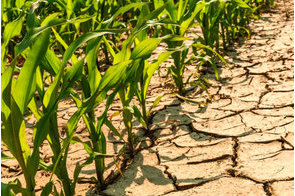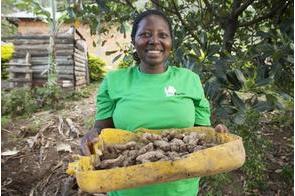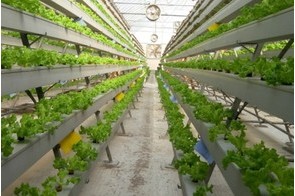Green Climate Fund approves $151 million for disbursement by AfDB

Summary
The approval comprises a $90.7 million grant and a $60.3 million loan.
The Green Climate Fund has approved $151 million in financing for a major resilience programme supported by the African Development Bank (AfDB) to address climate vulnerability in the Horn of Africa.
The approval was granted at the Fund’s 39th Board meeting and comprises a $90.7 million grant and a $60.3 million loan. The financing will support the AfDB’s “Building Climate Resilience for Food and Livelihoods in the Horn of Africa Programme,” benefitting 4.6 million people across Djibouti, Somalia, Kenya, Ethiopia and South Sudan, the bank said.
The Horn of Africa is most susceptible to climate-related risks, such as erratic rainfall, rising temperatures, and increasingly frequent droughts and floods. These conditions have exacerbated socioeconomic challenges and threatened the livelihoods of agro-pastoral communities reliant on rain-fed agriculture. Climate change has led to increased livestock, crop and human diseases, and land degradation, reducing productivity.
Martin Fregene, the AfDB’s Director for Agriculture and Agro-Industry, said the bank is committed to building climate resilience.
“The mobilisation of the Green Climate Fund support shows the continued commitment of the African Development Bank Group to scale up climate-resilient and sustainable agriculture systems in the Horn of Africa, thereby improving food security in one of the most vulnerable regions of the planet,” said Fregene. “These resources will further help consolidate the Feed Africa Strategy and complement the Country Food and Agriculture Delivery Compacts presented at the Dakar 2 Feed Africa: Food Sovereignty and Resilience Summit. This will support the reduction of poverty and food insecurity while contributing to accelerated sustainable economic growth in the region.”
The new financing will support community-driven and gender-balanced resilience solutions. According to the statement, this includes sustainable land management practices, access to climate-smart technologies and best practices, renewable energy, capacity-building for cooperatives, agribusiness and micro, small and medium enterprises, credit and climate services, early warning, and index insurance.
AfDB’s Director for Climate Change and Green Growth, Anthony Nyong, said the bank has had a long-standing commitment to action on climate change and is committed to ensuring that it streamline low-carbon and climate-resilient economic development in all key sectors of its work.
Beyond community benefits, the Green Climate Fund financing is projected to contribute to significant carbon emission reduction, potentially sequestering 14.1 metric tons of carbon dioxide equivalent over the project’s 25-year lifetime – equivalent to lifetime emissions of 600,000 cars.
The AfDB said it will administer the new financing and monitor the programme, which will begin in the first quarter of 2025. The five target countries, through their respective ministries responsible for finance and agriculture, will implement it over a six-year period with the project interventions expected to benefit targeted communities for 25 years.
Related
-
Helping farmers build resilience to climate change
Farmers all over the world are in dare need of crop varieties that can grow and thrive in their changing environment.
-
Wefarm secures $13 million funding to lift small scale agriculture
Wefarm said this financing will help to further scale its network of 1.9 million farmers and connect farmers in Africa.
-
Modern sustainable farming techniques
We must not forget that over 60 million African children under five years are not growing properly.









